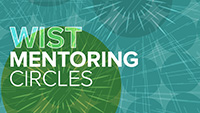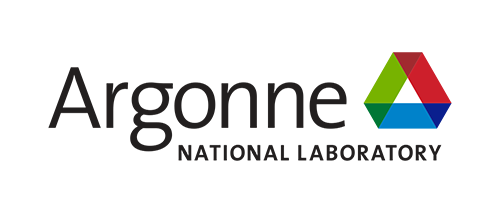I’m thrilled to announce that the next WIST Program Initiator (PI) will be transitioning into the position during the month of August with an official start date in September! I’m confident that WIST will continue to thrive and progress the mission and Argonne’s culture further under this new leadership. While I’m very excited to see the direction the next PI takes, this time is also bittersweet for me, especially as I look back on all that WIST has accomplished and worked towards during the two years of my term in the role.
When I first became the WIST PI, we started by conducting focus group interviews and an overarching program management review to better understand the perceptions of WIST, program management needs, and the development of informed short- and long-term objectives. The results of these sessions, combined with WIST’s mission and the input of many WIST contributors, led to the development of campaigns in the following areas:
- Increase visibility of the program mission across other DEIA efforts, with Argonne leadership and all employees;
- Integrate and collaborate with relevant laboratory stakeholders, especially the Argonne Leadership Institute, Educational Programs, and the Employee Resource Groups (ERGs);
- Influence outcomes of laboratory policy discussions relevant to WIST and broader DEIA objectives; and
- Enhance professional growth and networking opportunities to promote and develop women at the Lab.
To these ends, I’m so pleased with the progress made on all four fronts, and this is in no doubt due to all the support provided to WIST from across the Lab, but especially from our In-Reach and Outreach Subcommittees, the Introduce a Girl to Engineering Day (IGED) and Science Careers in Search of Women (SCSW) Organizing Committees, and in particular the Co-Chairs of all these groups. What is truly impressive is WIST affected change in all four of the areas listed, while conducting very successful in-person IGED and SCSW outreach events to hundreds of female students in the Chicagoland area and beyond!
In terms of visibility, we saw a large expansion in interest in both subcommittees, enabling us to identify more challenges and opportunities and to develop creative approaches and solutions to them. Some of the most visible results include a refreshed WIST website, a new bimonthly e-newsletter with a Women@Argonne Spotlight Series, and rebranding of WIST materials and messaging to Open to All to enhance engagement across the entire Lab. WIST also actively engaged in broader DEIA discussions with the ERGs, DEIA Councils, Lab Leadership, and ALI, bringing the outcomes and results of those interactions to bear in collaborative discussion about what WIST should pursue and how to best leverage laboratory resources to do so.
Spotlight Series, and rebranding of WIST materials and messaging to Open to All to enhance engagement across the entire Lab. WIST also actively engaged in broader DEIA discussions with the ERGs, DEIA Councils, Lab Leadership, and ALI, bringing the outcomes and results of those interactions to bear in collaborative discussion about what WIST should pursue and how to best leverage laboratory resources to do so.
In terms of integration and collaboration, WIST connected directly with Institutional Partnerships STEM Education team and the Hispanic Latino Club (HLC) and Argonne African American (AAA) ERGs to develop a new joint outreach event to underrepresented students in Chicago Public Schools. See Yourself in STEAM is taking place in November 2023, and I am grateful to the STEM Education team for their expertise in engaging with students as well as their community engagement analysis of the Chicagoland area to help us develop an engaging program. I look forward to seeing these partnerships grow as WIST plans future outreach events, such as Introduce a Girl to Engineering Day (IGED) and Science Careers in Search of Women (SCSW).
In terms of Laboratory policy impact, WIST raised issues surrounding (1) equity in attribution for patents and publications that led to participation in broader research integrity discussions and the provision of recommendations for standardizing expectations across all Laboratory facilities; and (2) the inclusion of DEIA into the performance review process that led to WIST’s development of specific guidance that was discussed in detail senior laboratory leadership, ALI, and HR. We will continue to advocate in these areas and others, as is part of our mission.
Finally, WIST launched several professional development and networking opportunities, including the year long Mentoring Circles program focused on small-group peer-to-peer mentoring, and the WIST Podcast Discussion Series, focused on mental/emotional health related topics and in partnership with HEW.
program focused on small-group peer-to-peer mentoring, and the WIST Podcast Discussion Series, focused on mental/emotional health related topics and in partnership with HEW.
As my term as WIST PI comes to an end, I would like to personally thank all the individuals that brought concerns and challenges forward, formulated ideas, developed and worked towards solutions that WIST could push forward, and coordinated and managed our complex outreach events. WIST is very much a program that requires individual contributions of time and expertise, as well as continued joint efforts and partnerships. I look forward to seeing what all of WISTs contributors will do in the future!
Best,
Lauren Boldon

 Spotlight Series
Spotlight Series program
program
